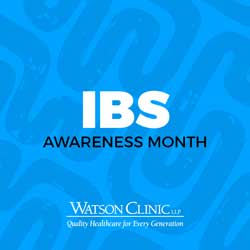 Do you have—or suspect you may have—irritable bowel syndrome (IBS)? Here are five FAQs about IBS that might help you better understand this difficult disorder.
Do you have—or suspect you may have—irritable bowel syndrome (IBS)? Here are five FAQs about IBS that might help you better understand this difficult disorder.
1. What is IBS?
IBS is best understood as a long-term or recurrent disorder of gastrointestinal (GI) functioning.
Functional GI disorders, which doctors now call disorders of gut-brain interactions, are related to problems with how your brain and your gut work together. These problems can cause your gut to be more sensitive and alter how the muscles in your bowel contract. Changes in how these muscles contract lead to diarrhea, constipation or both.
2. Who gets IBS?
Women are about twice as likely as men to develop IBS. It's more common for people younger than age 50 to develop IBS than older people. Risk factors for developing IBS include having:
• A family member with IBS.
• A history of stressful or difficult life events in childhood, such as abuse.
• A severe infection in your digestive tract.
3. What are some symptoms of IBS?
People with IBS may experience mostly diarrhea, mostly constipation, or both diarrhea and constipation.
Other common symptoms of IBS include:
• Bloating—a sensation of fullness in the belly.
• Urgency—the need to use the bathroom in a hurry.
• Mucus in the stool, and the sensation of incompletely passing stools.
4. How is IBS treated?
Lifestyle changes are often recommended as a first line of treatment. Recommendations are based on your symptoms and what triggers them. For instance, if eating certain foods makes your IBS worse, then you may need to avoid those foods or eat fewer of them.
Work with your doctor to identify factors that may make your symptoms worse.
5. Are there medicines that can help treat IBS?
If lifestyle changes do not relieve IBS symptoms, there are medicines that may help, including:
• Antispasmodics, which may relieve abdominal pain or discomfort in some people, particularly if their symptoms occur soon after eating.
• Anti-diarrheal agents, which can prevent or relieve symptoms of diarrhea but may not ease its pain.
• Laxatives, which can help with symptoms of constipation but may not do much to control its pain. These drugs should be used under the supervision of a physician.
• Anti-anxiety medications, which can be helpful for people who have IBS associated with psychological distress.
Sources: International Foundation for Gastrointestinal Disorders; National Institute of Diabetes and Digestive and Kidney Diseases